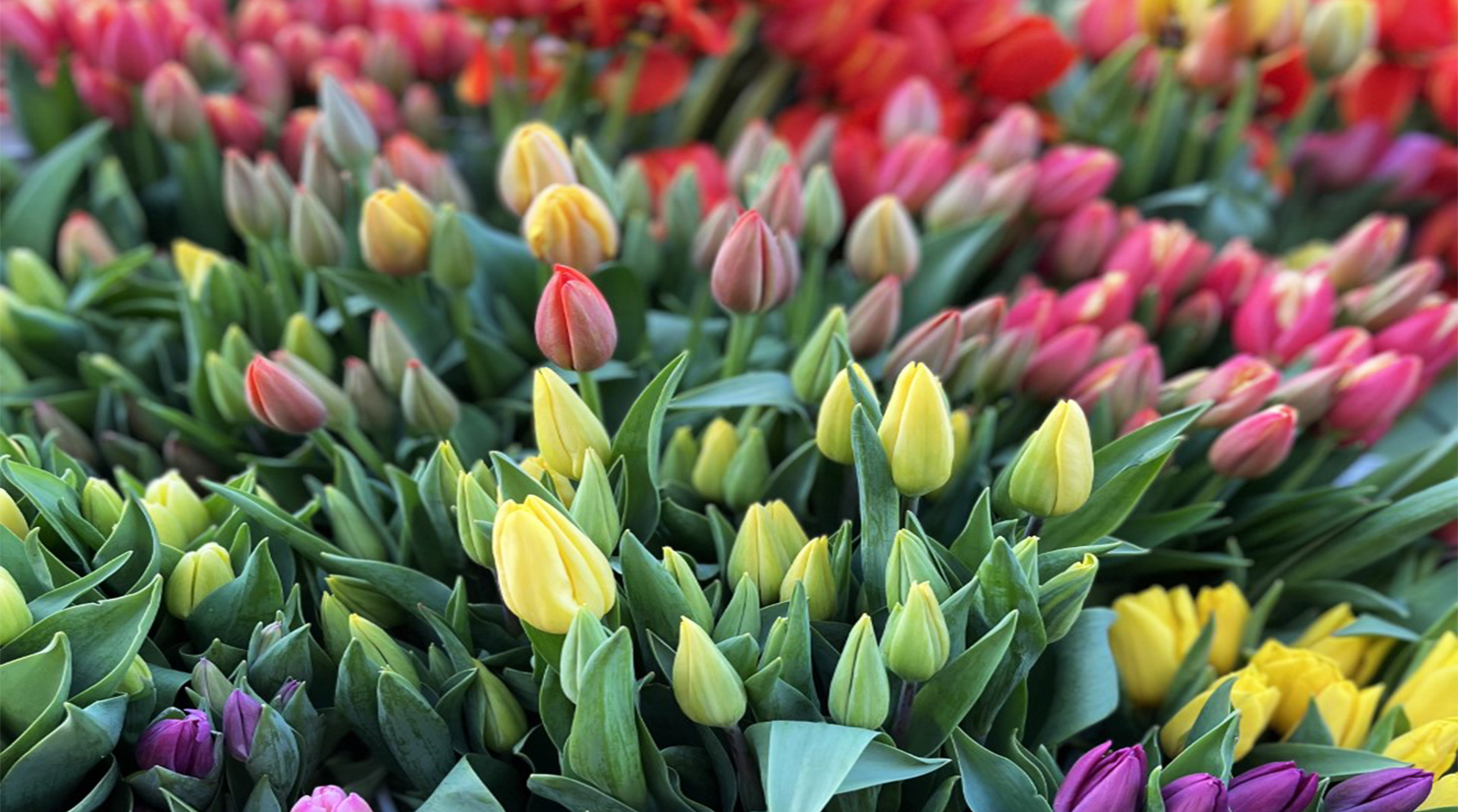CEO Corner: Fresh or Rotten in our Food Systems
A Tale of Two Flowers
Andy Naja-Riese, AIM CEO, February 14, 2022
Valentine’s Day is synonymous with flowers and chocolates, but did you ever take a step back to think about the dark side of the global flower industry? Over 1.1 billion flowers are imported and inspected in the U.S. for Valentine’s Day, according to Business Insider. Ninety percent of these are roses. Most of the flowers sold in U.S. grocery stores are imported from Colombia, and to a lesser extent, Ecuador. Through a sophisticated cold supply chain, roses and mixed bouquets are flown to Miami where they are inspected by U.S. Customs and Border Patrol for insects, pests, and diseases that could harm U.S. agriculture.
Sounds lovely, right?
Unfortunately, it’s not so rosy.
Valentine’s flowers flown to US airports produced approximately 360,000 metric tons of Carbon dioxide, according to estimates by the International Council on Clean Transportation. That’s the equivalent of 78,000 cars driven for one year. Plus, there’s the additional greenhouse gas emissions for shipping flowers within the U.S.
On top of the carbon footprint of imported cut flowers, these flowers are often treated with glyphosate, an herbicide and other preservatives to extend their shelf lives. Workers—most often women—are exposed to these toxins with grueling work conditions while earning poverty wages. Local agricultural communities can be negatively impacted too: children who live near greenhouses where flowers are grown are exposed to pesticides that in turn contribute to short-term neurological effects, according to US and Education researchers affiliated with UC San Diego.
So if you have a choice of flowers for Valentine’s Day or all-year-round, consider buying local flowers that are grown sustainably and with USDA organic certification where possible, and with protections and living wages for workers. Buy direct from small family farmers you know at AIM’s Farmers Markets, or ask your florist where their flowers come from.

